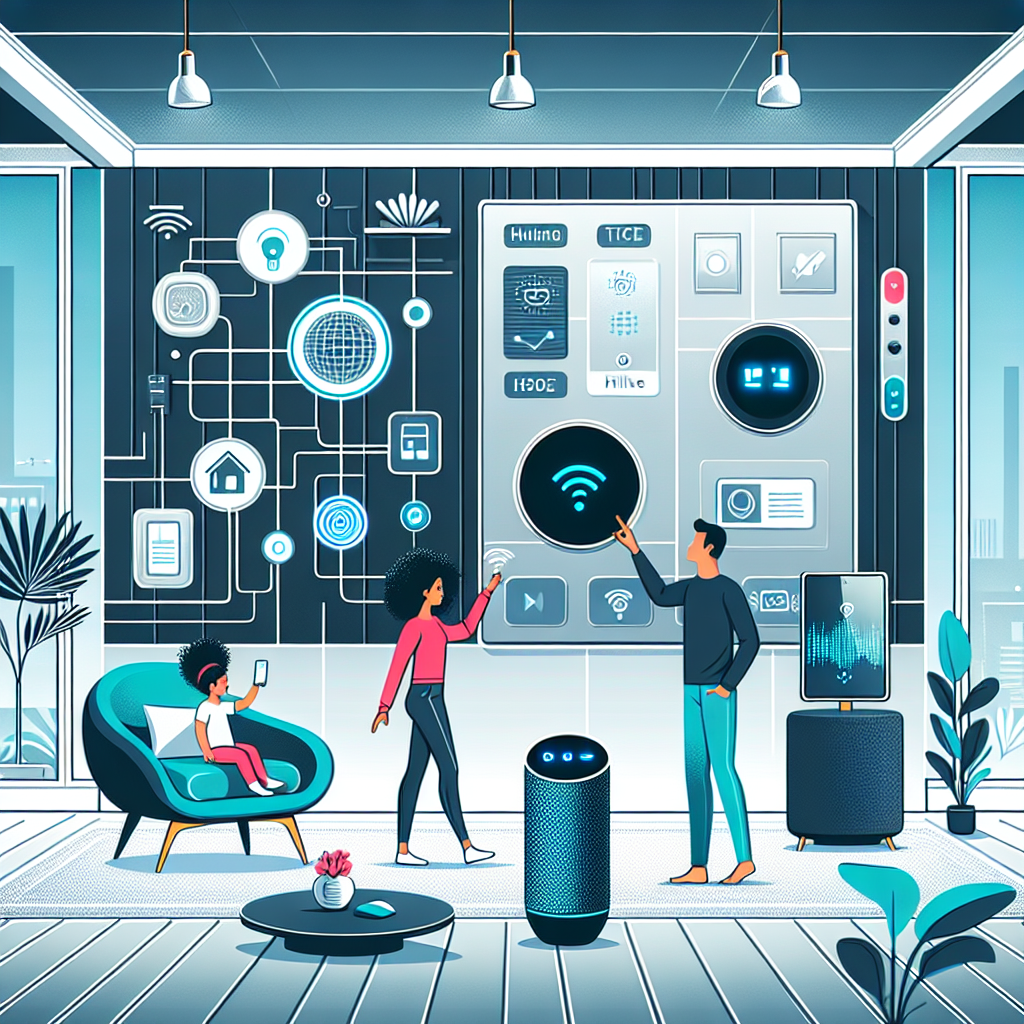In recent years, conversational AI has become increasingly popular in the realm of smart home technology. This advanced technology allows users to interact with their devices using natural language, making the user experience more intuitive and seamless. From controlling smart home devices to answering questions and providing information, conversational AI has revolutionized the way we interact with our homes.
One of the key benefits of conversational AI in smart homes is its ability to enhance the user experience. By providing a more natural and intuitive way to interact with devices, users can easily control their smart home systems without the need for complex interfaces or technical knowledge. This level of convenience and accessibility is especially important for elderly or disabled individuals who may have difficulty using traditional interfaces.
Additionally, conversational AI can personalize the user experience by learning user preferences and habits over time. This allows smart home systems to anticipate the needs of users and provide more relevant and tailored responses. For example, a smart thermostat equipped with conversational AI can learn the user’s temperature preferences and adjust the settings accordingly without the need for manual input.
Another advantage of conversational AI in smart homes is its ability to integrate with a wide range of devices and services. Users can control multiple devices and systems using a single voice command, making it easier to manage their smart home ecosystem. This level of interoperability is crucial for creating a seamless and connected user experience.
Conversational AI technology also enables users to access information and services more easily. By simply asking a question or giving a command, users can get instant answers and perform tasks without the need to navigate through multiple menus or interfaces. For example, users can ask their smart home assistant to play music, set reminders, check the weather, or even order groceries online.
Furthermore, conversational AI can enhance home security by providing real-time alerts and notifications. Smart home systems equipped with conversational AI can detect unusual activity or potential threats and alert users immediately. This level of proactive security monitoring gives users peace of mind and ensures the safety of their home and belongings.
In addition to enhancing the user experience, conversational AI in smart homes also offers numerous benefits for developers and manufacturers. By incorporating conversational AI technology into their products, developers can differentiate their offerings in the market and provide added value to customers. This can lead to increased customer satisfaction and loyalty, as well as a competitive advantage in the rapidly growing smart home industry.
Furthermore, conversational AI can help manufacturers gather valuable data and insights about user behavior and preferences. By analyzing user interactions with smart home devices, manufacturers can gain a deeper understanding of user needs and preferences, allowing them to develop more targeted and innovative products in the future.
As conversational AI continues to evolve and improve, we can expect to see even more advanced capabilities and features in smart home technology. From predictive analytics to proactive automation, conversational AI has the potential to transform the way we interact with our homes and enhance the overall user experience.
FAQs:
Q: Is conversational AI safe to use in smart homes?
A: Yes, conversational AI technology is designed to be secure and protect user privacy. Manufacturers implement stringent security measures to safeguard user data and ensure that interactions with smart home devices are encrypted and protected from unauthorized access.
Q: Can conversational AI understand different accents and languages?
A: Yes, most conversational AI systems are trained to recognize and understand various accents and languages. However, the accuracy of speech recognition may vary depending on the system’s training data and algorithms.
Q: How can I customize my smart home assistant’s responses?
A: Many smart home assistants allow users to customize their responses by setting preferences and adjusting settings in the device’s app or settings menu. Users can also provide feedback to the assistant to help improve its accuracy and performance over time.
Q: Can conversational AI be integrated with other smart home devices and services?
A: Yes, conversational AI is designed to be interoperable with a wide range of smart home devices and services. Users can control multiple devices using a single voice command and create a seamless and connected smart home ecosystem.
Q: What are some future trends in conversational AI for smart homes?
A: Future trends in conversational AI for smart homes include advanced natural language processing, predictive analytics, and proactive automation. These technologies will enable smart home systems to anticipate user needs and provide more personalized and intelligent responses.

